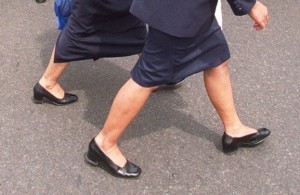Have you recently paid a bribe to a local politician, judge or police officer? If so, you’re not alone. More than one in four people around the world have paid a bribe in the past year, according to a global survey conducted by Transparency International.
Released Tuesday, the survey finds that corruption is a growing problem, with a majority of respondents saying that the situation has deteriorated in their country over the past two years.
The survey also shows that in many countries, people are losing trust in government institutions.
Political parties are seen as the most corrupt class of organization in some 51 countries.
Thirty-six countries name the police as the most corrupt, while another 20 countries say the judiciary is their biggest source of trouble.
I – Word Understanding
Soars – to increase dramatically
Bribe – money or something of value given in order to make someone do something
Corruption – dishonest or illegal behaviour
Deteriorated – became worse
II – Have your say
1. According to World Bank estimates, between $1 trillion to $1.6 trillion dollars are lost globally each year to illegal activities. Corruption decreases the wealth in a country and lowers the standard of living. According to the 2012 Corruption Perception, Denmark ranks #1 as the least corrupt country and Somalia at #174 as the most corrupt country.
2. Bad or low incentives is one of the reasons for corruption. For example, a clerk who is not earning enough to live on, or not sure that he will have a job tomorrow, might supplement his income with bribes.
3. Gift giving is a form of bribery. It is called petty corruption and is common in developing countries.
Grand corruption occurs in the highest levels of the government.



